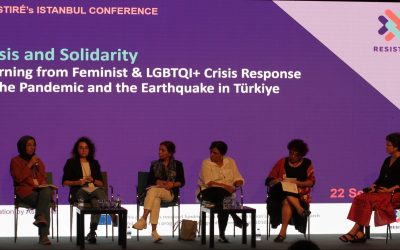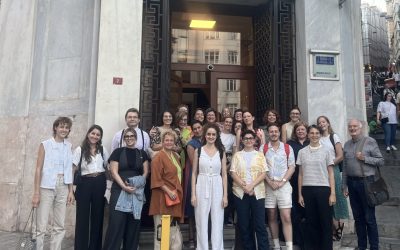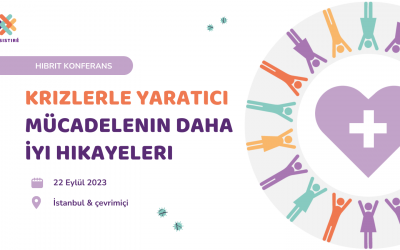INTERSECTIONALITY AND HEALTHCARE:
LESSONS LEARNT FROM RESISTIRÉ
Watch the recording:
The COVID-19 pandemic caused significant backlogs and delays in the healthcare sector. Attention given to the fight against the virus meant that other areas of healthcare have been deprioritised and people in need of non-urgent medical care, e.g., those living with chronic conditions, were less likely to have their medical needs met. As a result, pre-existing health inequalities have become even more visible, and access to quality health services – almost impossible for those less privileged. As revealed by the RESISTIRÉ research findings, women and girls, especially in rural and marginalised communities, struggled to receive adequate treatment and medical care. This was furthermore compounded by multiple or intersecting inequalities, such as ethnicity, socioeconomic status, disability, age, race, geographic location and sexual orientation. These healthcare disparities, brought into the spotlight by the COVID-19 emergency, call for a more intersectional approach to public health allowing for more targeted interventions and effective policies.
In this webinar we reflect on the prerequisites of more resilient healthcare systems across Europe. We look into the examples of good practices presented by the invited speakers in order to draw conclusions on how to ensure the continuity of healthcare services and how to address the physical, psychological and social health needs of vulnerable groups in the event of future emergencies.
Panellists
Mateusz Bieżuński
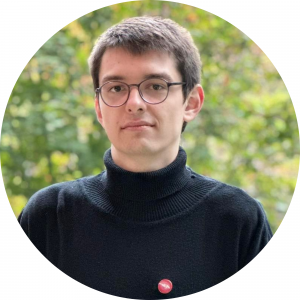
FEDERA Foundation for Women and Family Planning
Mateusz is a law student interested in sexual and reproductive health and rights and an activist of FEDERA. Professionally, he researches the anti-gender movement.
Karen Mullié
Community Health Workers
Karen has been working for the Christian Health Insurance Fund (CM) since 1998. Her focus areas are patient rights and advocacy. Since 2021 she has been working as the federal coordinator of the intermutual Community Health Workers project in Belgium.
Mathias Neelen
Community Health Workers
Mathias started working for the Socialist Health Insurance Fund (Solidaris) in 2012. He focusses on accessibility, affordability, and quality of healthcare in Belgium. From the start of the COVID crisis in 2020, he contributed to the intermutual management of Field Agents in Flemish contact tracing. Since 2021 he is active as deputy coordinator of the intermutual Community Health Workers project in Belgium.
Tamás Gerencsér
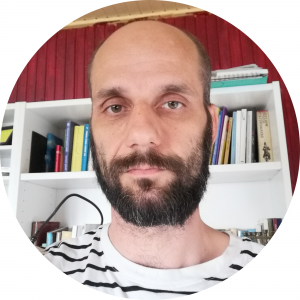
Budapest Methodological Centre of Social Policy and Its Institutions
Tamás is a Policy Officer of the Training and Policy Department of BMSZKI. In this role he coordinates international strategic partnership projects such as PIE4shelters aimed to implement the principles of the Psychological Informed Environment approach into the operation of services where women are accommodated in our organisation, as well as the Erasmus+ Women and Homelessness project, sharing good practices and working methods in connection to the support of women experiencing homelessness.



